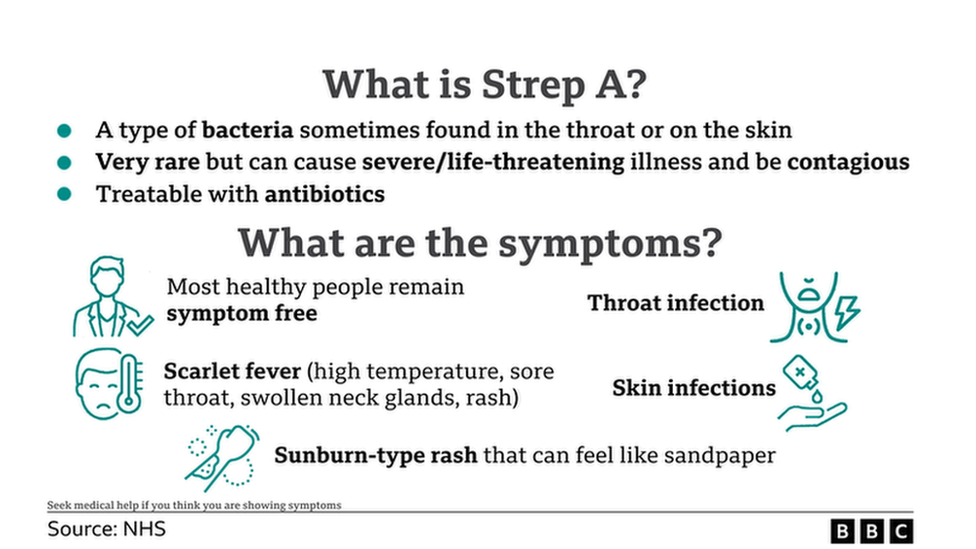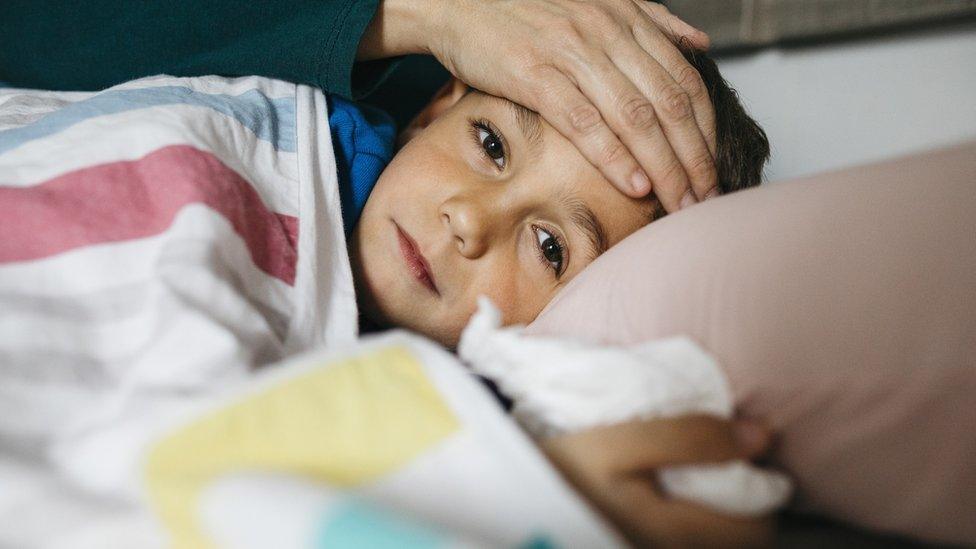Scarlet fever: Three more cases at Carmarthenshire school
- Published

Thirty-three cases of scarlet fever have been found in pupils at Brynaman Primary School
Three more cases of scarlet fever have been found in pupils at a primary school where two children have needed hospital treatment after an outbreak.
It takes the total number of reported cases at Brynaman Primary School, in Carmarthenshire, to 33.
There have been no further cases of invasive Strep A identified, meaning the figure stands at three.
Since September, 15 UK children have died after invasive strep A infections, including seven-year-old Hanna Roap.
Hanna, from Penarth, Vale of Glamorgan, was described by her family as "bubbly" and "always smiling".
In a letter to parents, Brynaman Primary School said it was working with the council, Public Health Wales (PHW) and Hywel Dda health board.
PHW has previously said the scarlet fever cases at the school occurred over six weeks and that the number was higher than would normally be expected.
PHW health protection consultant Sion Lingard said: "Invasive Group A Streptococcal disease (iGAS) is a rare complication which usually affects fewer than 20 children in Wales each year.
"Although iGAS is concerning, the majority of these children will recover with proper treatment."


What is scarlet fever?
It is caused by a bacteria group called streptococcus, also known as strep A.
The rash of scarlet fever often begins with small spots on the body which then spread to the neck, arms and legs. It is often sandpaper-like to touch, but is not itchy.
Your child may also have a:
Flu-like symptoms, including a temperature of 38°C (100.4°F) or above
Sore throat/tonsillitis
Painful, swollen glands in the neck
A red tongue (strawberry tongue)
It is a notifiable disease, meaning health professionals must inform health protection teams of suspected cases. This is so they can be treated quickly and possible outbreaks brought under control.
If a parent or carer suspects scarlet fever or invasive strep A infection, they should call their GP or NHS 111 as prompt treatment with antibiotics can prevent serious illness and stop infections spreading.
- Published8 December 2022

- Published9 December 2022

- Published7 December 2022
